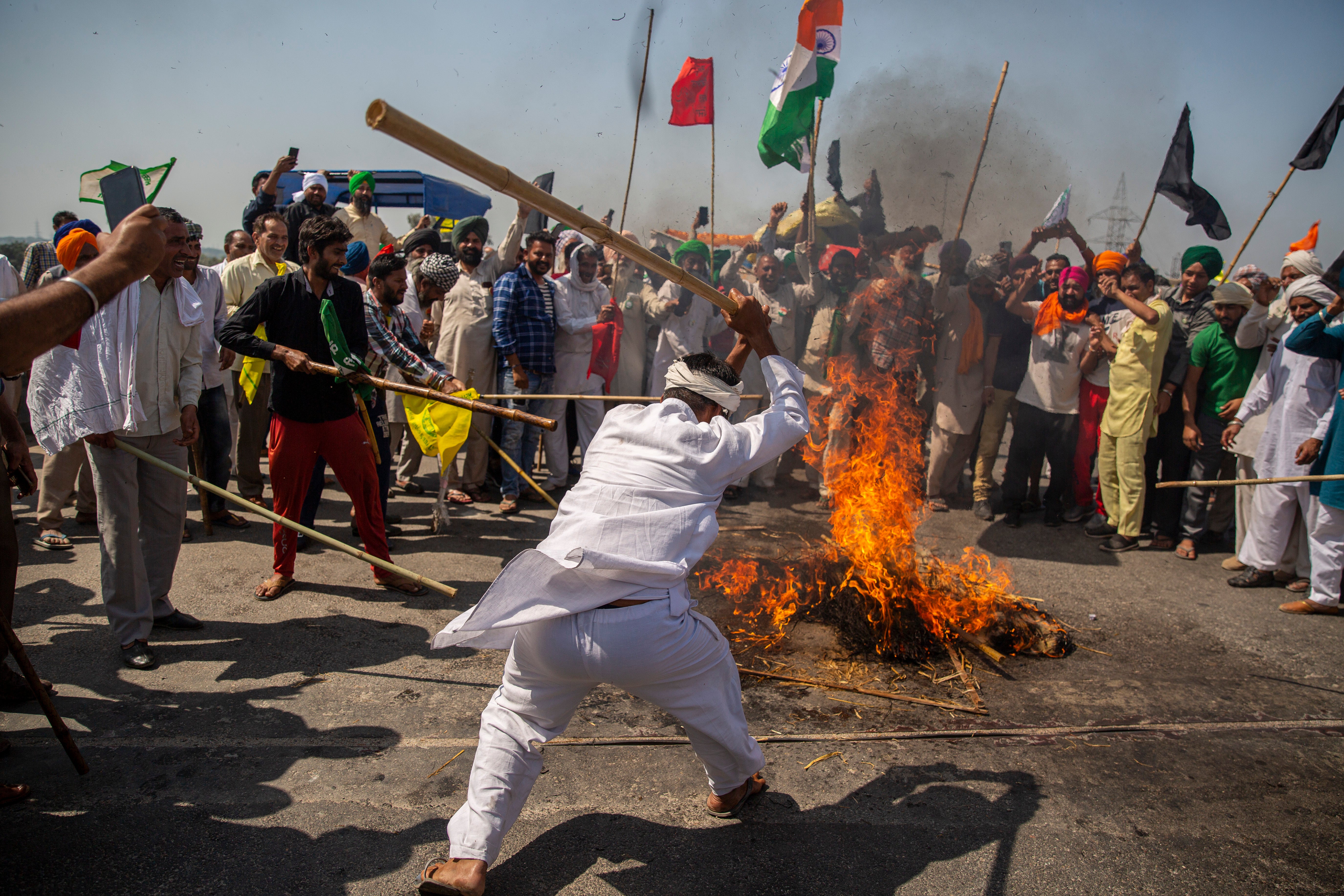India summons UK ambassador over ‘unwarranted’ MPs’ debate on farmer protests
Government of India calls Westminster debate ‘a gross interference in the politics of another democratic country’

India has summoned the UK’s ambassador in Delhi to object after British MPs held a debate on the Indian farmer protests.
Monday’s debate was called after a public petition received more than 100,000 signatures on the parliament website.
MPs from the Liberal Democrats, the SNP and Labour expressed concerns over the way police in Delhi have handled the protests, which have been continuing on the outskirts of the capital for more than 100 days.
While the protests have generally been peaceful, police have been accused of using excessive force in clashes with demonstrators, shutting down internet access in areas where protesters are camped out and arresting journalists covering the agitation.
In a statement, the Indian government called the debate “a gross interference in the politics of another democratic country”.
It said on Tuesday evening that the Indian foreign secretary “summoned the British High Commissioner and conveyed strong opposition to the unwarranted and tendentious discussion on agricultural reforms in India in the British Parliament”.
An earlier statement from India’s High Commission in the UK called the debate “one-sided”. “We deeply regret that rather than a balanced debate, false assertions - without substantiation or facts - were made, casting aspersions on the largest functioning democracy in the world and its institutions,” it said.
Opening the debate, the SNP MP Martin Day noted that “the UK government has already stated that the farm reforms are a matter for the Indian government’s decision”.
“So we are not debating the reforms now. We are debating for the safety of the protesters. Water canons and tear gas and repeated clashes between police and farmers and interruption in internet connectivity have been matters of concern. Several farmers have reportedly committed suicide,” he said.
The former Labour leader Jeremy Corbyn, who has also previously come out in support of the farmer protests in videos on social media, said: “The unprecedented protests should make one think about why so many are turning up. The arrests of journalists is a matter of serious concern.”
Conservative MPs cautioned against sweeping comments on the state of Indian democracy, however. Theresa Villiers said: “We receive complaints against policemen here in the UK too when there are mass protests. That doesn’t mean the UK is against democracy.”
Appearing at the debate for the government, minister of state for Asia Nigel Adams said the UK’s “close ties with India doesn’t hinder the nation from raising concerns”, and that this would be done the next time Boris Johnson meets with India’s Narendra Modi.
Indian farmers have been protesting in large numbers since November, after the passage of three laws designed to reform the country’s agriculture sector.
The government says the laws will bring much needed modernisation, removing the reliance on local middle-men and state-run markets and allowing farmers to sell their produce directly to customers across the country, benefiting growers in the long run.
Farmer unions fear the laws will open up their members to exploitation by large corporations and eventually be used to take away the minimum, state-guaranteed price they currently receive for their goods. Several rounds of talks have failed to make progress, and the two sides remain at an impasse.
Join our commenting forum
Join thought-provoking conversations, follow other Independent readers and see their replies
Comments



Bookmark popover
Removed from bookmarks